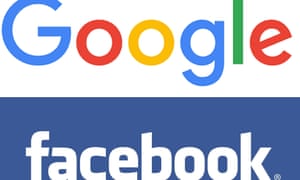Weekly New/Digital Media (68)
Facebook and Google were conned out of $100m in phishing scheme
Summary: "Not even two of the biggest US technology firms are safe from fraud, as the social network and the search company named as victims of sophisticated attack""
"Last month it was reported that two major tech companies were tricked by a Lithuanian man into sending him over $100m (£77m). Evaldas Rimasauskas, 48, was charged with wire fraud, money laundering and aggravated identity theft for impersonating Quanta Computer – a Taiwanese electronics manufacturer that includes Google, Facebook and Apple as clients."
"The case shows just how big an issue phishing and online fraud has become, with phishing attacks conning people and companies all over the world out of significant sums of money."
Key facts/ statistics:
- The National Audit Office warned in December that the UK was ill prepared for online fraud and that it cost UK consumers at least £14.8bn last year, of which £4.2bn is thought to be hidden and unreported losses from crime such as mass marketing fraud and counterfeit goods.
- in January, accountants KPMG recorded the value of fraud committed in the UK last year reported to the court system to have exceeded £1.1bn – a 55% year-on-year rise highlighting a dramatic rise in cybercrime.
- From costly conveyancing scams to fake IT support, it’s more important than ever to double-check anything asking for personal details or money. But when even Facebook and Google, who make technology that is meant to help protect against online scammers, get tricked, it paints a grim picture for your average user.
My opinion:
It highlights just how 'unsafe' NDM might be especially for audiences. If massive multinational organisations are falling victim to cyber crimes it highlights just how dangerous it may be for users on the platforms who have extremely limited knowledge against these threats. I think with the rapid development of NDM and just how much its becoming a part of our lives its important to educate audiences and users in regards to how to protect themselves against cyber crimes which just seems to be getting more frequent and sophisticated as NDM continues to develop. It also highlights that if these institutions cannot protect themselves they are unfit to protect their users too and they must put more measurements in line to protect its users in order to keep their experience online pleasant.

Comments
Post a Comment